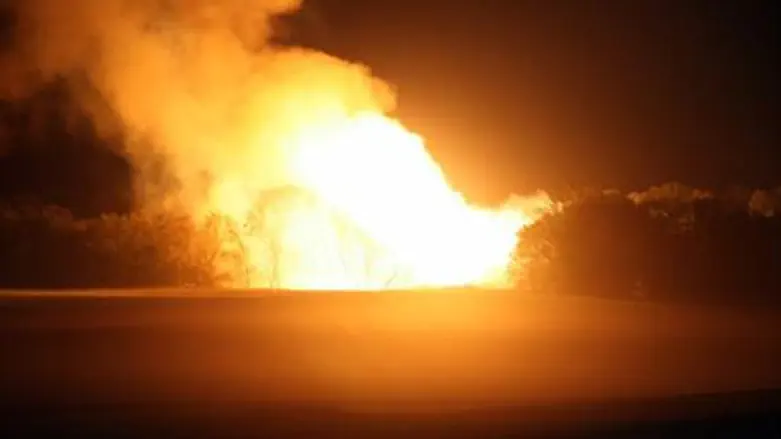
The latest Egyptian-Israel gas pipeline blast signals a further erosion of “goodwill” from Cairo, according to Infrastructures Minister Uzi Landau. He also warned that electricity prices will soar by 20 percent.
“Economic ties between Egypt and Israel are eroding,” Landau warned on Army Radio Tuesday. An immediate result will be a hike by approximately 20 percent in the cost of electricity as the Israel Electric Corp. is forced to use expensive diesel fuel as a substitute for natural gas from Egypt. It will take at least two years until Israel’s newly-found offshore gas fields will be online.
Diplomatic relations with Egypt also are worsening, he said, after the uprising that resulted in the ouster of Egyptian President Hosni Mubarak and the installation of a provisional military regime. Israel has allowed Egypt to place more troops in the Sinai to protect the gas pipeline from El Arish to the Israeli port of Ashkelon.
The 1979 peace treaty with Cairo prohibited or limited an armed military presence in the area, but despite Israel’s willingness to overlook the agreement, Egyptian forces have not been able to – or do not want to – protect the pipeline.
The agreement to sell gas to Israel has been the source of anger for Egyptian dissidents and the Muslim Brotherhood.
The natural gas pumping facility ay El Arish and the pipeline have been attacked four times in the past year. "Even if you appoint local tribesmen or anyone to guard such a facility, no one would really protect it because they hate the facility, the gas supply to the enemy and the government that signed such an agreement," Sheikh Ibrahim Abu Elayan, the secretary-general of the Arab Tribes Association, told McClatchy newspapers. "This agreement is a dagger in Egypt's heart."
Security at the gas facility at Bir El Abd, a Bedouin stronghold, is “laughable,” journalist Mohannad Sabry wrote after visiting the site. The Bedouin guards are unarmed and have no monitoring devices or even night-vision goggles.